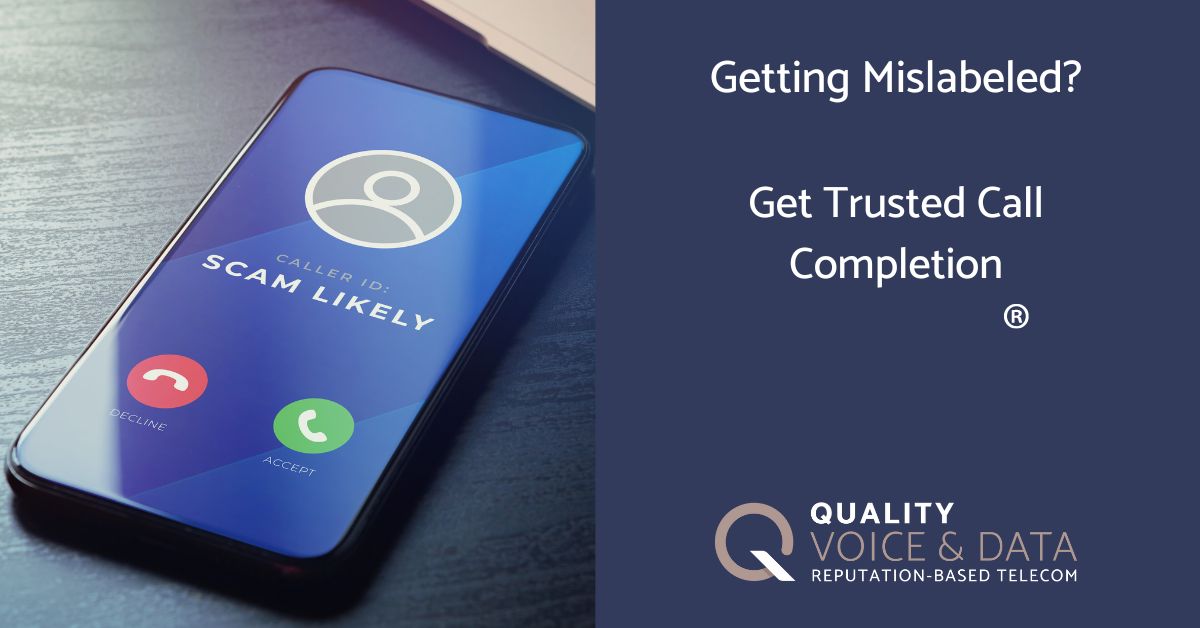Scam likely labeling and blocked calls have become a challenge for businesses that rely on making and receiving calls for business transactions or customer communication. With the increasing number of robocalls and spam calls, legitimate businesses are facing difficulties in reaching their customers or developing a trustable relationship with them. In this blog post, we will discuss the biggest challenges of call blocking and labeling and how shaken telecom service providers can help businesses overcome these challenges.

Legitimate Calls Mislabeled as Scam Likely or Blocked
The primary challenge of call blocking and labeling is that legitimate calls often get mislabeled as spam or robocalls. This happens because call blocking and labeling algorithms use various criteria to determine the authenticity of a call, such as the calling number, the calling party’s name, and the call’s frequency. Unfortunately, these criteria are not foolproof, and even legitimate calls can get mislabeled or blocked.
For instance, a business may make a call from a new phone number or a phone number that is not on the recipient's contact list. In such cases, the call may trigger the spam detection algorithm, leading to the call being labeled as spam. This can cause the legitimate call to go unattended or be blocked entirely, leading to a loss of business opportunities.
Definition of Spam Calls Varies by Country
Another challenge of call-blocking and labeling is their different definitions across different countries and regions. In the United States, for example, the Federal Communications Commission (FCC) has defined spam calls as those that have a marketing or sales purpose. On the other hand, in the United Kingdom, a call must also be “persistent and unwanted” to be considered spam.
These inconsistencies in definition and regulation can make it difficult for businesses to navigate the call-blocking and labeling landscape, especially when dealing with cross-border communication. It is crucial to understand the different regulations around call-blocking and labeling and how they may affect your business.
Existing Customers May Also See Scam Likely When You Call Them
Moreover, call-blocking and labeling can impact businesses' customer service and outreach efforts. Customers may see mislabeled calls from legitimate numbers as spam calls, leading them to ignore or block such calls. This can result in missed opportunities for businesses to connect with their customers and provide them with value.
To address these and other challenges associated with call blocking and labeling, the telecom industry has developed a framework known as the Signature-based Handling of Asserted information using toKENs (SHAKEN) and the Secure Telephone Identity Revisited (STIR) protocol. SHAKEN is designed to help businesses overcome the challenges of call blocking and labeling by enhancing the security of the calling number identity.
SHAKEN uses cryptographic signatures to ensure that the calling number identity is authentic and not being spoofed. The protocol allows the telecom service provider signing the calls with an attestation level to verify the calling number's legitimacy. It will then validate this signature by comparing it to the signature generated by the recipient service provider. If these signatures match, the call is legitimate, and it is allowed to go through.
This system enables businesses to ensure that their calls are not labeled as spam or blocked by call-blocking and labeling algorithms. By signing their calls with an attestation level, businesses can receive a higher trust rating, which will enable their legitimate calls to go through.
The benefit of using a shaken telecom service provider, like Quality Voice & Data, signing calls with an A attestation is that it enhances communication reliability and security, making it easier for businesses to reach their customers and vice versa.
This is especially important in today's digital business environment, where communication is vital to building trust and loyalty.
Moreover, SHAKEN and STIR protocols enable businesses to improve their call tracking and analysis by providing more accurate call data. This can help businesses identify areas for improvement in their customer service and outreach efforts, leading to greater customer satisfaction and retention.
In conclusion, call blocking and labeling are significant challenges for businesses that need to make and receive calls as part of their operations. These challenges arise because of the increasing prevalence of spam calls and robocalls, as well as inconsistencies in regulation and definitions across different countries and regions.
To overcome these challenges, businesses can rely on shaken telecom service providers signing calls with an attestation, which will enhance the security of the calling number identity and improve communication reliability. This, in turn, will help businesses build trust and loyalty with their customers, leading to greater business opportunities and success.
Angela Garfinkel currently serves as Director for Quality Voice & Data. With 30+ years of call center and business process outsourcing experience, Angela provides the QVD team with key insights to support product development, marketing and sales.
Angela Garfinkel, Director at Quality Voice and Data, brings over 30 years of experience in call center and business process outsourcing. Well known in the telemarketing and telecommunications industry, she co-authored a course for The Direct Marketing Association and actively participates in professional groups like PACE. Her educational background includes an MBA and an undergraduate degree in Telecommunications Management from the University of Nebraska.

